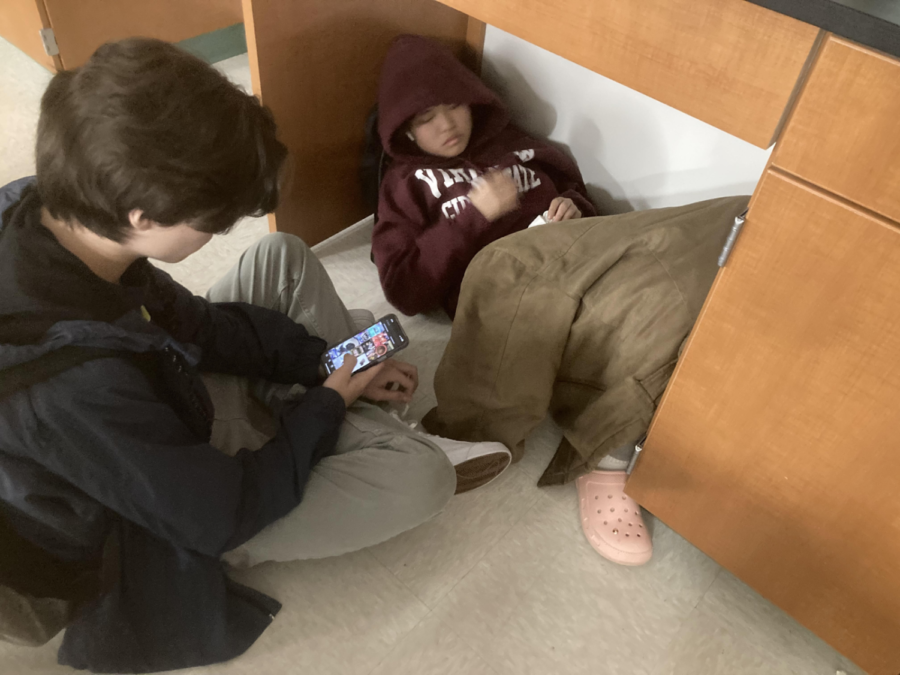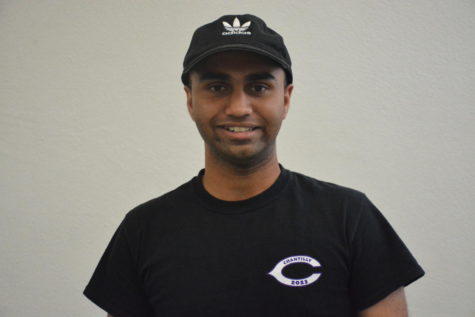Seniors should not lose track of bigger picture
Senior Fern Alarcon plays Clash Royale during his AP Physics class while senior Cole Hansen takes a nap on Feb. 9.
April 12, 2023
As senior Hamza Zaman rolls into second semester, he chooses to sleep an extra hour, study an hour less and slack off an hour longer. Many seniors, like Zaman, often fall prey to senioritis.
According to Merriam Webster Dictionary, senioritis is a decline in motivation and performance by seniors. In a sense, senioritis is caused due to the burn out of younger years according to the University of the People.
“Over time, high school students are getting more and more competitive,” Zaman said. “A few years ago, three APs in junior year was seen as competitive, but now even five barely suffices. So, by the time students get to senior year, they really need a break.”
According to the University of the People, anticipation for the future also leads to senioritis. By fixating too much on what the future holds, students’ focus slips from the tasks at hand.
Although senioritis may seem appealing to students, it can have dire consequences, such as colleges rescinding their offers of admission and changes in financial aid offers. According to Grown and Flown, not just senioritis but other forms of disciplinary issues can impact a college’s decision to revoke a student’s acceptance.
“When you submit your application, it clearly says that the admission is pertinent to you maintaining similar grades and extracurricular performance,” Zaman said. “So, it may not be a good idea to go from an A to a C.”
Even if colleges give students the benefit of the doubt, seniors, especially in Northern Virginia, often take multiple AP classes, which can be turned into college course credit. So, not paying attention in classes is more than just senioritis: it is a lost opportunity to save money and time in college.
“By not paying attention, we are losing our grip on the basics,” senior Sahil Lalani said. “And if we do not understand the basics, it will get really difficult in college.”
According to Auburn University, high schoolers average about 35 hours a week in classes compared to an average 18 hours per week spent in classes by college students, yet college students are expected to work two hours for every hour spent in class per California State Polytechnic University. Thus, by learning important skills like time management in senior year, students are better prepared for college.
“Senior year is the last time we get ‘babied,’” Zaman said. “In college, no one cares if you were super busy and could not submit things on time. So, instead of giving up, seniors should polish their study habits and skills.”
According to Best Value Schools, colleges can rescind their admission offers if an admitted student is suspended or arrested. Students can be suspended for a number of reasons, ranging for discipline issues to disruption of the learning environment.
“Once people get into a competitive college, it changes them,” Lalani said. “They want to have fun before they go to college and work hard again, but sometimes, they do not know the right boundaries of ‘fun’.”
While it is fair for seniors to take a break by not putting in as much hard work as they did in previous years, they should not lose track of their long-term goals—getting into college is only the first battle won.



